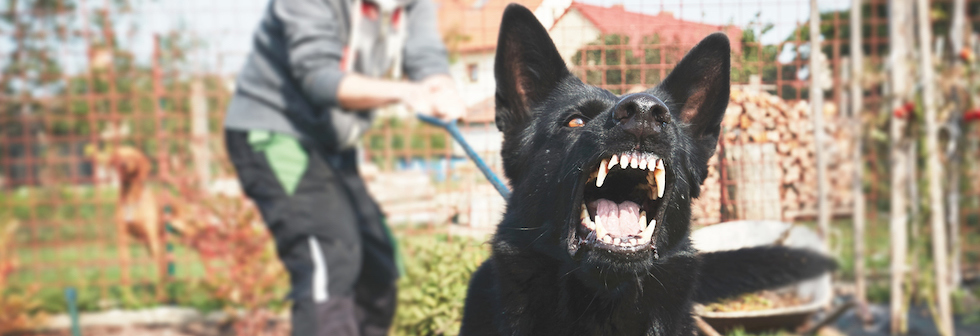
Some states have a “one bite” rule, meaning dog owners cannot be held liable unless they knew, or should have known, the animal was a threat. Connecticut is not one of those states.
If you or a family member are bitten or attacked by a dog, the owner or keeper of the dog is liable for your injuries under Connecticut’s strict liability dog bite law, Connecticut General Statute §22-357. (The statute of limitations for filing a legal action is three years because dog bite claims are considered a tort action.)
Injuries caused by dogs can result in permanent disfigurement and/or loss of body parts. Cramer & Anderson’s Personal Injury attorneys are experienced in working with medical experts and life care planners who assist in calculating future damages.
Dog bite and attack victims are not required to prove the owner or keeper of the animal was negligent or knew the dog was a threat.
There are exceptions to this strict liability, including injuries sustained when a victim was trespassing or committing another tort (wrongful act subject to civil liability), or if the victim was teasing, tormenting, or abusing the dog.
As a result of these exceptions and unfamiliarity with the Connecticut law, dog bite victims may mistakenly assume an attack was their fault, or that they had at least some degree of responsibility that would preclude taking legal action.
It’s important to contact an attorney if you are injured by a dog no matter the circumstances because courts have interpreted both the litmus test for trespassing in dog bite cases and what constitutes teasing, tormenting, or abusing a dog.
For example, a 2018 Connecticut Office of Legislative Research report on the state’s dog bite law said that “courts have interpreted the ‘trespass’ exception as requiring something more than uninvited entry onto the land.” The report said contemporary cases refer to language in a 1953 Connecticut Supreme Court case that said “the word ‘trespass’ as employed in the exception refers to something more serious than the mere technical trespass of entering upon the land of another where neither intent to damage nor damage in fact is involved, and where no acts are committed which would naturally arouse an ordinary dog to action to protect its owner’s property or family … .”
In dog bite cases when the victim is younger than seven, Connecticut law presumes that the minor was not committing a trespass or other tort, or teasing, tormenting, or abusing such dog. The burden of proof is on the dog owner or keeper in such cases.
While Connecticut’s dog bite law is brief and empowers those who have been injured, there can be complexities in dog bite cases.
Someone injured by a dog could bring a common law negligence claim against a party other than the dog’s owner or keeper, for example.
The Connecticut Supreme Court has held that a landlord could be liable for a bite by a tenant’s dog if the landlord was aware of the dog’s vicious tendencies and did not adequately act to alleviate the known danger, according to the Office of Legislative Research report.
If someone is injured by two or more dogs at the same time that have multiple owners or keepers, those owners or keepers shall be jointly and severally liable for such damage, according to another Connecticut statute.
What that means is each owner would be responsible for the entire amount of the damages. (Those being held liable would have to sue the other owner(s) or keeper(s) to try to recover a portion of the damages.)
Connecticut’s dog bite law also applies to property damaged by dogs.
Whatever the circumstances of a dog bite or attack incident, Cramer & Anderson’s highly experienced team of Personal Injury attorneys who handle dog bite cases are ready to help. With six regional offices in western Connecticut, we work with clients from across the state.
Call our flagship office at (860) 355-2631 for a free consultation with an attorney about your dog bite case or connect with one of our dog bites/Personal Injury attorneys directly through the links below to their profile pages.
Ryan Henry
Christopher Sochacki
Kent Mancini
Randy DiBella
Barry Moller
Jennifer Collins

